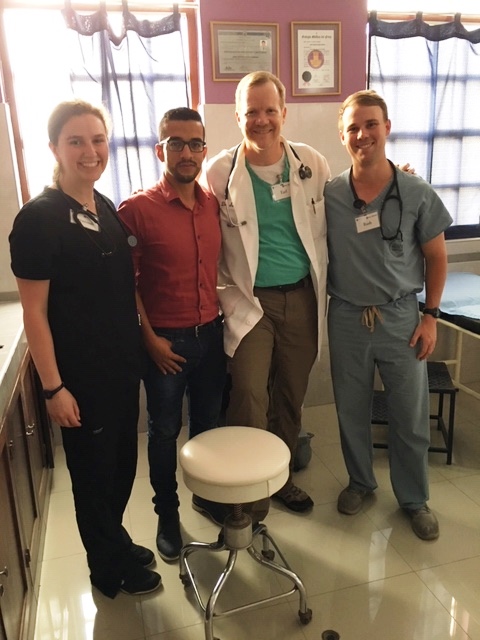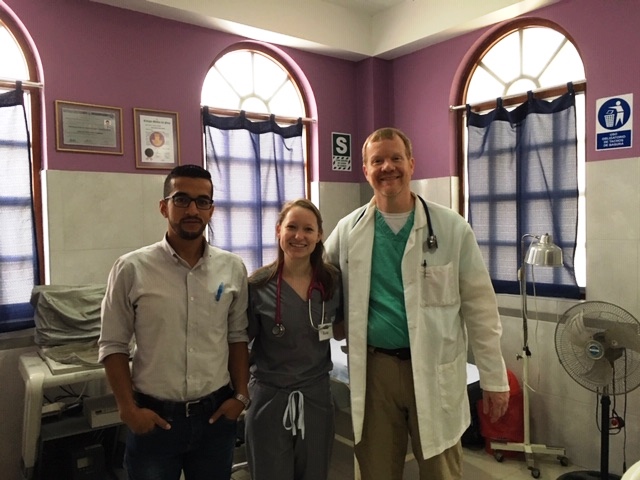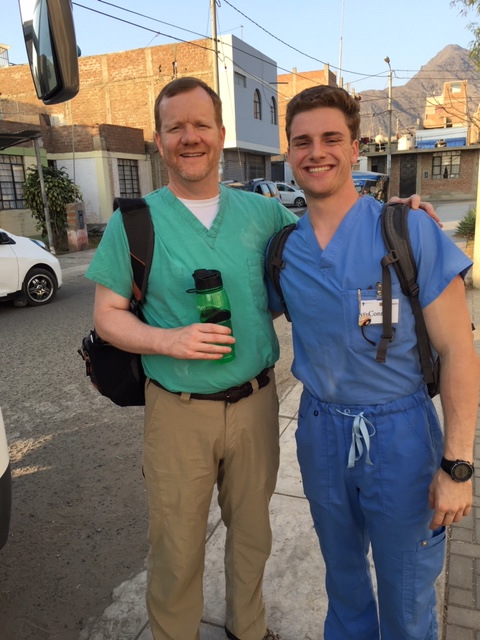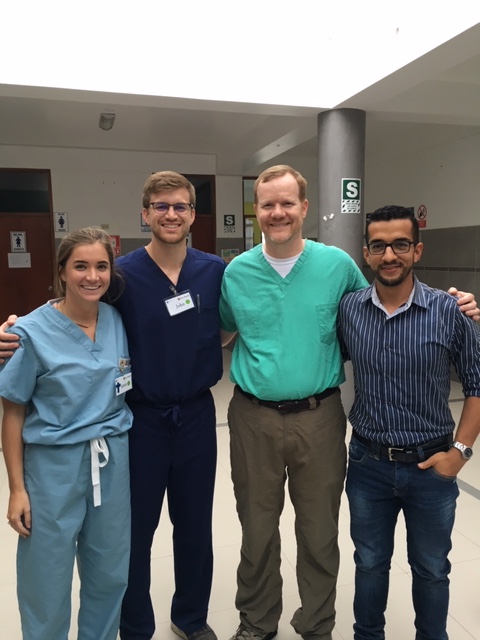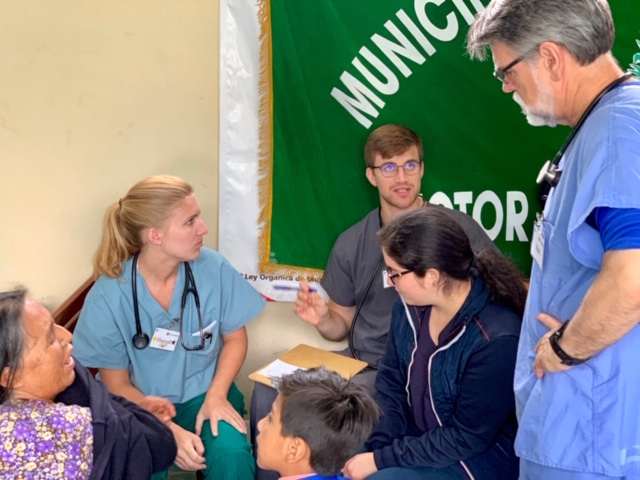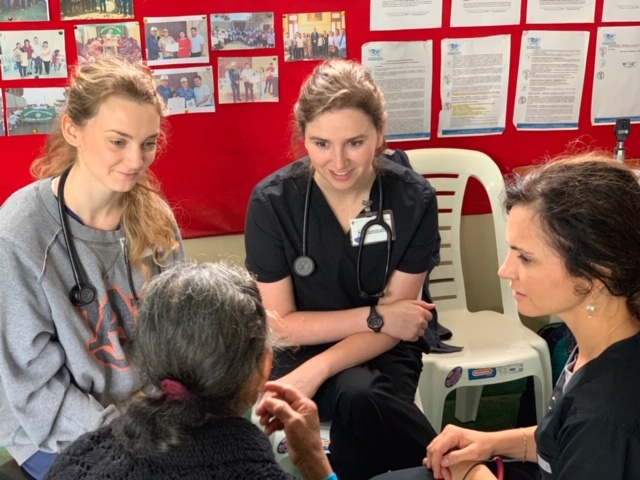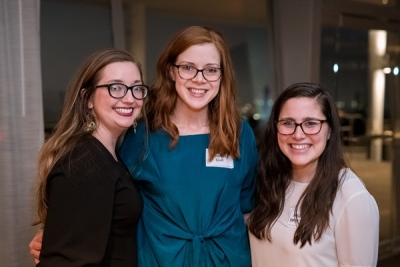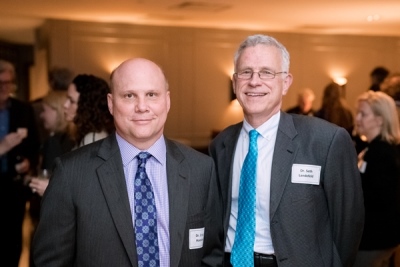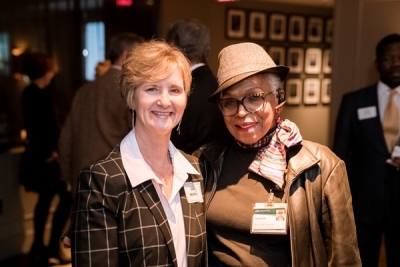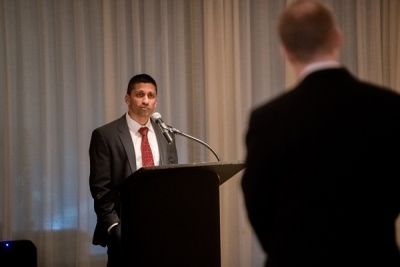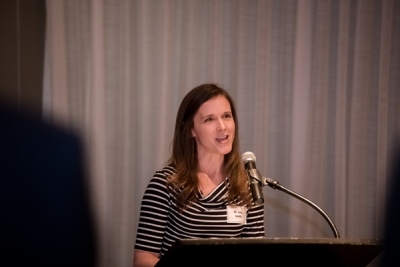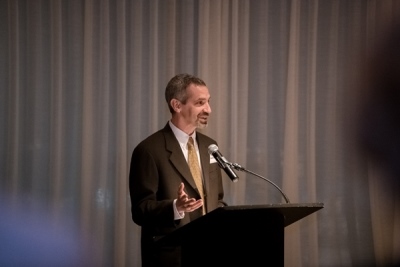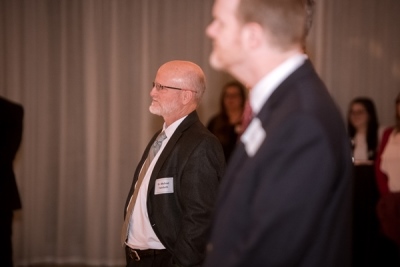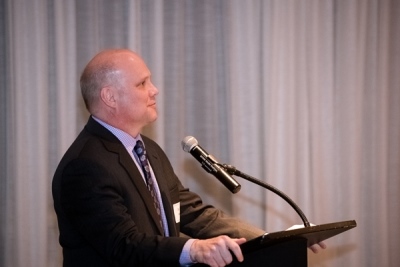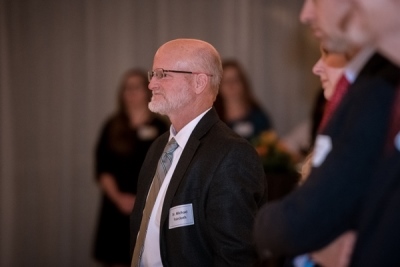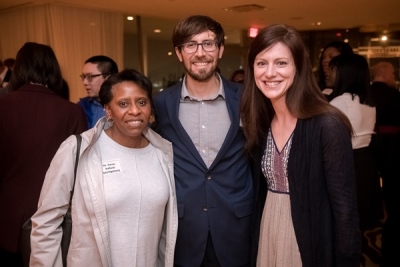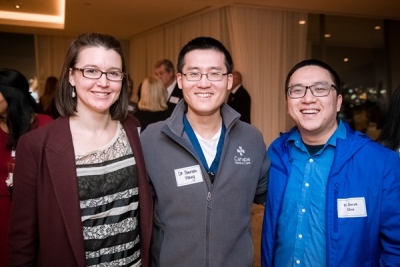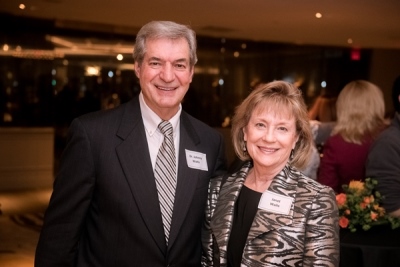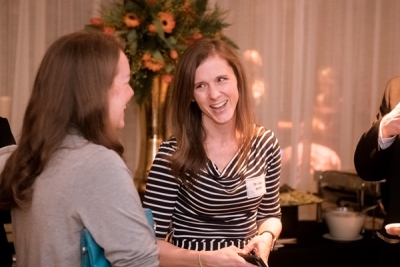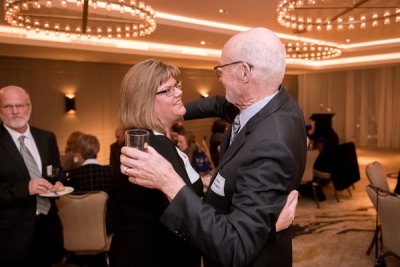Project ECHO Depression
The UAB Department of Family and Community Medicine is partnering with the Department of Psychiatry and the Depression and Suicide Prevention Center to bring the Project ECHO Model to family medicine and primary care practitioners across the state. Project ECHO Depression will connect Alabama providers with a team of experts at UAB to help them better care for patients suffering from depression.
Project ECHO uses a hub-and-spoke model to “move knowledge instead of people” in pursuit of better patient care. The model utilizes virtual tools to connect physicians with experts in other areas to encourage innovation and allows for open discussion about difficult cases to assist physicians in providing even better care. It began in New Mexico and has quickly become a national standard for empowering regional clinicians through monthly e-learning clinics. By leaning on virtual tools, Project ECHO Depression can reach more practitioners and assist them with the diagnosis and treatment of depression in their practices.
Participating physicians will receive access to monthly clinics, staffed by UAB psychiatrists, a family medicine physician, psychologists, and patient advocates. These clinics will be held virtually and offer Alabama clinicians the chance to gain didactic instruction and undergo live, de-identified and HIPAA-compliant mental illness case discussion on a monthly basis.
“We are excited to bring this model to our department and to practitioners across the state,” said Kimberly Smith, Ph.D., director of the Alabama Practice-Based Research Network (APBRN) and assistant professor for the department. “Through monthly ECHO sessions, we aim to make a difference in the lives of these practitioners, by helping them gain knowledge and assurance in prescribing a variety of treatment plans to better take care of their patients who are struggling with mental illness.”
The project is currently seeking family and primary care physicians to participate in the study. To participate, please fill out the interest form.
To learn more about Project ECHO Depression or to donate to this project, click here.
How the COVID-19 vaccine fits into yearly immunization recommendations
 UAB Medicine has begun administering COVID-19 vaccinations based on the Alabama Department of Public Health’s phased plan. But the Centers for Disease Control also recommends that patients stay current with other yearly immunizations.
UAB Medicine has begun administering COVID-19 vaccinations based on the Alabama Department of Public Health’s phased plan. But the Centers for Disease Control also recommends that patients stay current with other yearly immunizations.
Yearly immunizations are considered preventive, and family medicine physicians at the UAB Highlands and Hoover clinics are helping patients schedule appropriate immunizations while keeping their personal health history in mind.
“In addition to the COVID-19 vaccine, there are many vaccines that can help prevent illness and keep patients healthy,” said Erin DeLaney, M.D., assistant professor and vice chair for clinical care and quality in the Department of Family and Community Medicine. “These may include, but are not limited to, vaccines for the flu, pneumonia, shingles, tetanus, and meningitis. If patients have questions about these immunizations, they should discuss them with their primary care physician. Any of these vaccines can be safely given at least 14 days before or after the COVID-19 vaccines.”
Sameera Davuluri, M.D., assistant professor in the Department of Family and Community Medicine, notes the importance of consulting medical professionals when considering yearly immunizations.
“Patients should check in with their primary care doctor who knows their health history,” said Davuluri. “The medical community recommends that nearly everyone take the COVID-19 vaccine as it becomes available to them. The CDC has created a guide for those who have questions about whether or not they should take the vaccine.”
DeLaney and Davuluri outlined several recommendations pertaining to the COVID-19 vaccine and their responses to common questions asked by patients:
- The current available COVID-19 vaccines are safe for most people who are at least 16 years of age.
- Those who should not get a COVID-19 vaccine include anyone who has had a severe allergic reaction to a previous dose or component of either mRNA COVID-19 vaccine, an immediate allergic reaction of any severity to a previous dose or component of an mRNA COVID-19 vaccine (including polyethylene glycol), or an immediate allergic reaction of any severity to polysorbate.
- Precautions should be taken by those who have a history of immediate allergic reaction to any other vaccine or injectable therapy and those with moderate to severe acute illness.
- Patients who have had the COVID-19 illness, and those who have received the monoclonal antibodies or convalescent plasma treatment for the illness, need to wait 90 days before receiving the vaccine.
- Patients with chronic conditions can receive the vaccine.
- Patients who have immunocompromised conditions due to medications or illness may also receive the vaccine. These patients must be aware that there is currently an unknown safety profile or effectiveness of the vaccine in immunocompromised populations; there is potential for a reduced immune response; and there is still a need to continue to follow all current guidance to protect themselves against COVID-19.
A full list of immunization recommendations and guidelines is available on the CDC’s website.
To schedule an appointment with a UAB family medicine physician, visit uabmedicine.org or call 800-UAB-8816.
For more information about vaccination and COVID-19, visit UAB United or consult the following UAB resources:
Alabama AHEC's COVID-19 Testing Center Spotlight: Firehouse Ministries
One of the populations that Alabama AHEC’s testing initiative served is local to Birmingham and gave access to testing to one of the city’s most underserved populations: individuals struggling with homelessness.
Firehouse Ministries is working against the effects of homelessness in Birmingham. The Firehouse Shelter, located on 2nd Avenue North on the west side of Birmingham, serves city’s chronically-homeless male population with the ultimate goal of getting them into permanent, supportive housing. Firehouse offers emergency services that include a soup kitchen open to everyone—now held outside, for the safety of the staff and residents—a clothing closet, case management, and emergency shelter.
Like many of its counterparts across the country, Firehouse is currently in a holding pattern until CARES Act funds are distributed from both Jefferson County and the City of Birmingham. The Alabama AHEC Network was made aware of the challenges that Firehouse was facing through James “Rick” Kilgore, M.D., who serves in a leadership capacity within the Alabama Statewide AHEC Program and as an active force in its COVID-19 testing initiative.
“No one should be denied basic healthcare in this country and in the face of a pandemic that is affecting the lives of the wealthy and not so wealthy, equally. It is important that those less fortunate, who have limited access to health care, should not be forgotten” says Kilgore. “We have to make sure testing is available to the homeless population if we are going to truly stem the tide of the pandemic in our communities.”
As a member of the Firehouse Mission’s Board of Directors, Kilgore has been influential in acquiring what medical equipment and residential protections the shelter has in place. Prior to the emergence of COVID-19, Kilgore worked with the homeless and the Firehouse Shelter to establish a medical screening and education clinic, and knows the obstacles many of the residents face in getting basic and advanced medical care. It is through his efforts that the network was able to offer this vital, closed, and secure testing site for the Firehouse residents on December 10, 2020.
Demand was high—70 test kits were initially prepared, though UAB provided extra kits for the site. At least 70 tests were administered before 9:30 a.m., and 86 tests were administered in total before testing closed. Firehouse had been lucky—with limited resources and great effort, they had yet to experience positive COVID-19 cases within their resident population. Fortunately, the tests administered by the Alabama AHEC Network all came back negative for COVID-19.
Click here to learn more about the Firehouse Shelter.
The Alabama AHEC program is committed to expanding the health care workforce of Alabama by maximizing diversity and facilitating distribution of resources, particularly in underserved communities. Its goals are to influence the training of health profession students and residents toward primary care; to provide continuing education and support for targeted health providers; and to implement programs, services, and activities that target underrepresented minorities, rural and otherwise disadvantaged Alabamians for careers in the health professions.
Alabama AHEC’s COVID-19 Test Efforts
 The Alabama Statewide Area Health Education Centers (AHEC) Program has planned and executed a COVID-19 testing strategy to serve Alabamians in rural and underserved areas during the pandemic. Alabama AHEC has focused on underserved populations with a higher incidence of COVID-19-related illnesses, particularly those in Hispanic and Black populations where access to care is limited. Their intent to bring specialized attention to areas that need it most has helped address the impact of COVID-19 on these communities.
The Alabama Statewide Area Health Education Centers (AHEC) Program has planned and executed a COVID-19 testing strategy to serve Alabamians in rural and underserved areas during the pandemic. Alabama AHEC has focused on underserved populations with a higher incidence of COVID-19-related illnesses, particularly those in Hispanic and Black populations where access to care is limited. Their intent to bring specialized attention to areas that need it most has helped address the impact of COVID-19 on these communities.
Working with partners such as the Alabama Department of Public Health (ADPH), the University of Alabama at Birmingham, Alabama Civil Air Patrol, and other local leadership and community organizations, Alabama AHEC’s testing initiative has completed more than 3,500 COVID-19 tests in 24 counties at 61 community testing sites across the state.
Using its five regional centers as a basis for outreach, Alabama AHEC developed local coalitions with community leaders and health professionals to assist in providing a cohesive testing process. Because of their work, thousands of Alabamians have been empowered to make informed decisions about their health throughout this pandemic.
"We have learned a great deal about the problems we are facing in these communities through our conversations with our partners, as relates to accessibility and trust,” said Michael B. Faircloth, M.D., director of the Alabama AHEC, medical and lab director for UAB Student Health, and associate professor for the Department of Family and Community Medicine. “There remains a lot of work to be done, particularly as we move into Alabama's imminent vaccination phase. It is our goal to take these lessons to heart, and to move forward with purpose as we continue to fight this deadly disease."
The testing centers have helped to slow the spread of COVID-19, but many underserved communities continue to have higher infection numbers compared to national standards.
"Our greatest trouble, so far, has been overcoming mask and testing fatigue in these communities,” said Joe Crozier, executive director for the North Alabama AHEC and coordinator for the COVID-19 Testing Initiative. “Even with the ongoing statewide mandates, numbers continue to increase in our rural populations. We hope to help educate these community members while conducting our testing efforts—it may be our best chance of combatting the misinformation that has stymied such efforts across the country."
Alabama AHEC’s collaborative testing sites will continue into 2021 to provide this service to even more communities across the state.
DeLaney named vice chair for clinical affairs and quality
 The Department of Family and Community Medicine is pleased to announce that Erin DeLaney, M.D., has been tapped to become its first vice chair for clinical affairs and quality. In her new role, DeLaney will provide oversight for the clinical enterprise and ensure quality measures are in place for provider performance, patient care, and outcomes.
The Department of Family and Community Medicine is pleased to announce that Erin DeLaney, M.D., has been tapped to become its first vice chair for clinical affairs and quality. In her new role, DeLaney will provide oversight for the clinical enterprise and ensure quality measures are in place for provider performance, patient care, and outcomes.
DeLaney received her medical training at the University of South Alabama and completed her residency at Maine Medical Center. She began her medical practice in Maine and returned to Alabama in 2013 to begin working for the department. She has served as the medical director and medical quality officer for UAB Family and Community Medicine–Highlands.
“Erin DeLaney is a thoughtful leader,” said Chair Irfan Asif, M.D. “Her interpersonal communication and ability to listen to others make her someone that others want to follow. She uses her skills and personal strengths to improve the lives of those she works for and the patients she serves. It is a pleasure to work with her, and I am excited for her to serve the department in this new role.”
DeLaney’s dedication to her patients and to maintaining excellent professional standards have earned her several awards throughout the years, including UAB Medicine’s awards for top communicators in 2019 and 2020 and a patient experience excellence award in 2018.
“I am honored and excited to be given the opportunity to serve our department and, ultimately, our patients in this new capacity,” said DeLaney. “I look forward to our continued growth as a department as we aim to improve the health of our community through education, research, and high-quality patient care.”
Eight providers named 2020 "Top-Performing Providers" by UAB Medicine
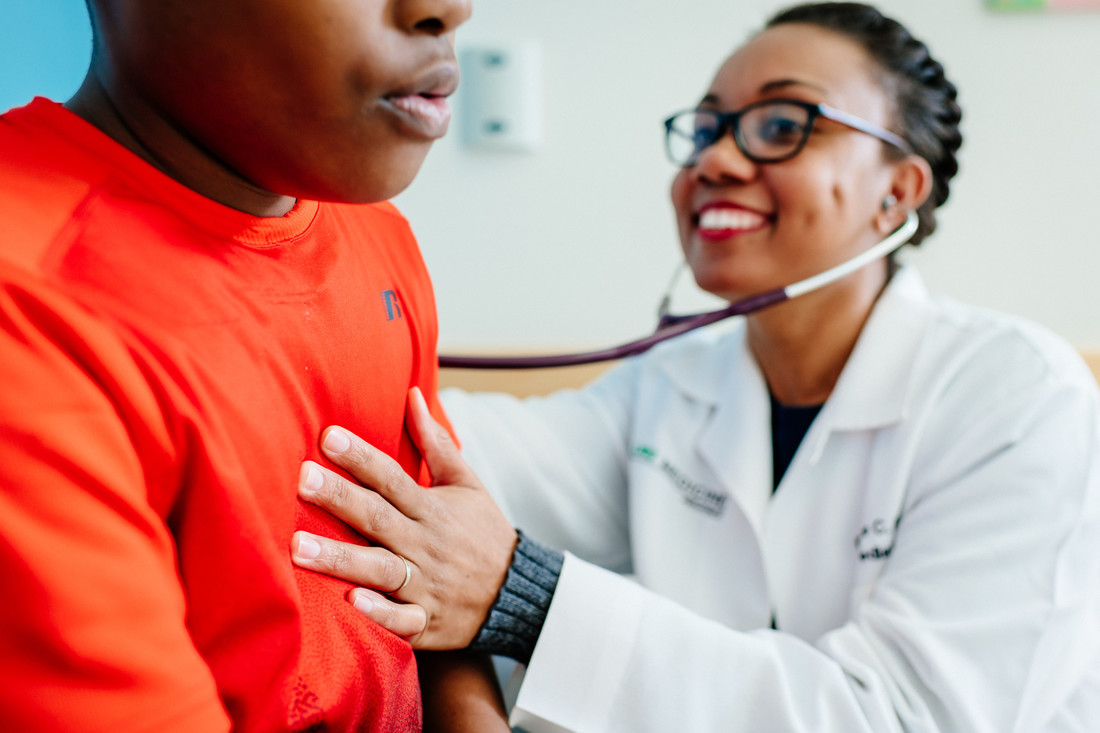
The UAB Medicine Office of Patient Experience and Engagement (OPXE) recognized eight providers from the Department of Family and Community Medicine in its 2020 list of "Top-Performing" providers.
According to the article on uabmedicine.org, “This year has been full of surprises, to say the least. With such massive disruptions across UAB Medicine, we expected to see a decline in our patient experience scores. However, throughout the COVID-19 pandemic, these measures have been rising. This is a testament to our providers’ commitment to the well-being and safety of patients.”
Faculty recognized from the Department of Family and Community Medicine:
Drs. Delaney and Salser have made the list for the third year in a row. This is also Dr. Davuluri's second time featured.
Congratulations to all of our outstanding providers!
Holistic Holiday Tips
 This year has been a challenge, to say the least. Issues with working situations, worries about health, and trouble staying in touch with loved ones are just a few of the ways that 2020 has made life more difficult. While this time of year is typically marked with joy and excitement, as well as some stress, this year there are added tensions related to remaining safe and healthy during the COVID-19 pandemic.
This year has been a challenge, to say the least. Issues with working situations, worries about health, and trouble staying in touch with loved ones are just a few of the ways that 2020 has made life more difficult. While this time of year is typically marked with joy and excitement, as well as some stress, this year there are added tensions related to remaining safe and healthy during the COVID-19 pandemic.
Thanksgiving safety tips from our family to yours

Thanksgiving will be different this year, but a safe and happy celebration is still possible. Remember to mask up to help protect you, your loved ones, and others from COVID-19. Read below to learn more on how to safely celebrate this year.
Nutrition tips from Dr. Caroline Cohen
- In anticipation of a holiday feast, eat normal, balanced meals. Often people are tempted to skip meals or eat very small meals to "save room" for the holiday meal, which can set you up for overeating later.
- Prioritize vegetables. Eat your vegetables first in a holiday meal, to fill up on fiber and valuable nutrients.
- Be mindful of liquid calories. Beverages served at holiday events, such as juice and alcohol, can contribute large amounts of calories without making you feel full; limit intake to no more than two drinks at a sitting.
- Relax. One more meal is not enough to derail your health goals, so savor and enjoy your favorite holiday food in moderation.
COVID-19 best practices from Dr. Ian McKeag
- Weekly medication container; can help ensure you don't forget your medications, and decrease space needed for individual pill bottles.
- Outdoor gatherings can help prevent the risk of COVID.
- Get your flu shot. Just because COVID is around doesn't mean that other viruses have gone anywhere.
- Wash your hands and wear your mask. This is going to be a rough holiday season for us all, but especially for nearly 1/4 million families who have lost loved ones. Some extra precautions this season will help protect the ones you love, and honor those who have lose their lives this year.
Mental wellness tips from Dr. Kaylee Crockett
- Not gathering with others this year because of COVID? Think of fun ways to connect and maintain a sense of community, such as a virtual pie judging contest among family and friends. Creative prizes are also encouraged.
- If you find yourself dreading judgemental comments from family members, think of your assertive, yet tactful, responses ahead of time. Consider practicing in the mirror so that you have some insight on how you might come across.
- Holidays can be a difficult time for grieving lost loved ones. Make some 'space' at the table to share memories and tell stories about those you are missing.
- Physical activity is an effective way to boost mood and manage stress and anxiety. Aim for at least 150 minutes of activity in a week. That's five 30-minute walks, 20 minutes of yoga or dance each day, or any combination of your favorite physical activities.
Wiederman discusses mindfulness on episode of UAB MedCast
 In a recent episode of UAB MedCast, Michael Wiederman, Ph.D., director of leadership and professional development, discussed the benefits of practicing mindfulness and incorporating the practice into one's daily routine.
In a recent episode of UAB MedCast, Michael Wiederman, Ph.D., director of leadership and professional development, discussed the benefits of practicing mindfulness and incorporating the practice into one's daily routine.
Michael Wiederman, Ph.D., featured on UAB MedCast
In a recent episode of UAB MedCast, Michael Wiederman, Ph.D., director of leadership and professional development, sat down to discuss "The Four Cs: A Guide to Mental and Emotional Well-Being."
Wiederman explores how humans can continue to flourish, assuming their material needs are met. Listen in as he shares the four core needs of emotional wellness: contribution/calling, competence/capability, control/choice, and connection/community.
Wiederman served as a clinical psychology professor for 19 years before transitioning to his current role in the Department of Family and Community Medicine. His interests include applying psychology for the betterment of peoples' health and well-being, facilitating the growth of emotional intelligence, and working with leaders to maximize their potential.
Asif named to the Board of Directors for the ADFM
 Irfan M. Asif, M.D., chair of the Department of Family and Community Medicine, has recently accepted a two-year appointment on the Board of Directors as chair of the Research Development Committee for the Association of Departments of Family Medicine (ADFM). The ADFM is the premier organization shaping the landscape of family medicine.
Irfan M. Asif, M.D., chair of the Department of Family and Community Medicine, has recently accepted a two-year appointment on the Board of Directors as chair of the Research Development Committee for the Association of Departments of Family Medicine (ADFM). The ADFM is the premier organization shaping the landscape of family medicine.
Celebrating the 2020 Cahaba-UAB Graduates and New Residents
The Department of Family and Community Medicine would like to congratulate the 2020 Cahaba-UAB Family Medicine Residency graduates. Of the seven graduates, four participated in the rural track and three from the urban track. A celebration was held via Zoom on June 22 at 7 p.m.
Read moreFox 6 News interviews Dr. Ian McKeag on when to call the doctor for flu
Doctor Ian McKeag with UAB Family Medicine says if you’ve got the flu, you’ll know right away.
“Fevers, specifically fevers above 100.4. Folks will also have symptoms like body aches, chills, headaches,” says McKeag.
See the full article
Fox 6 News Features Dr. Ian McKeag of UAB Family Medicine on germ proofing your home during flu season
Dr. Ian McKeag of UAB Family and Community Medicine gives advice on how to germ proof your home during the flu season. “A face mask or just good hand hygiene can make a big difference. Especially if you are working or living around someone who is elderly or under the age of 5. All those can really add up to be a good preventative measure,” said Dr. Ian McKeag, UAB. See the full article
Health Education Series Provided by UAB-Selma Family Medicine Physicians
From the West Alabama Newsroom–
A health education series at the public library in Selma is bringing people and doctors together to promote good health.
On the 1st Friday of each month — the Selma-Dallas County Public Library hosts ‘Medical Matters’ — a series on good health for healthy living.
The event brings doctors out to the library to talk with people in the community about health issues. See the full article
FOX 6 Features UAB Family Medicine Experts in Recent Segment on Heat Stroke
“Heat exhaustion is where you are starting to feel tired, your temperature might get elevated. The next spectrum would be heat illness. So now you’re having some organ damage. You might have manifestations of it, if I drew blood and looked at your kidneys, they might be affected,” said Dr. Irfan Asif, Chair of Department of Family and Community Medicine. See the full article
Medical Students Head to Peru
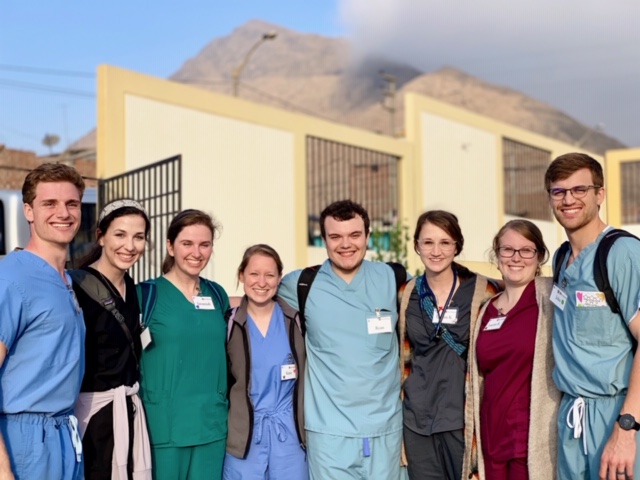
B. Earl Salser Jr. MD, Director of Student Medical Education for the UAB Department of Family and Community Medicine, travelled with 15 medical students and 6 health professionals to Trujillo Peru for a 2 week International Medicine educational experience. The group worked with Betesda Clinic which is a primary care and dental clinic started by a local NGO known as Peru Mission. The students were able to work with our team of family medicine physicians, general internists and pediatricians to see a variety of common primary care concerns, both at the clinic and in remote villages in the mountains near the city. Working with Peruvian translators, we were able to see 75-100 patients a day. Under the supervision of our physicians, the students were able to practice their clinical skills directly, help run an on-site pharmacy, and learn about the challenges of clinic management. They were also involved with several minor procedures. This was a valuable time for all involved and gave our students a broader understanding of the challenges of healthcare in underserved populations and the necessity of primary care to address holistic needs.
UAB Family and Community Medicine and Cahaba Medical Care Reception

A reception was held to celebrate the recently established partnership between UAB Family and Community Medicine and Cahaba Medical Care to train Family Medicine residents in rural and urban settings. This academic consortium is aimed at increasing the number of family physicians.
National Wear Red Day in the Department of Family and Community Medicine
Employees of the Department of Family and Community Medicine, along with other Highlands co-workers, participated in the 2019 Red Campaign photo shoot for National Wear Red Day. In recognition of heart month, employees wore red to help raise awareness of heart disease as the number one killer of women.

